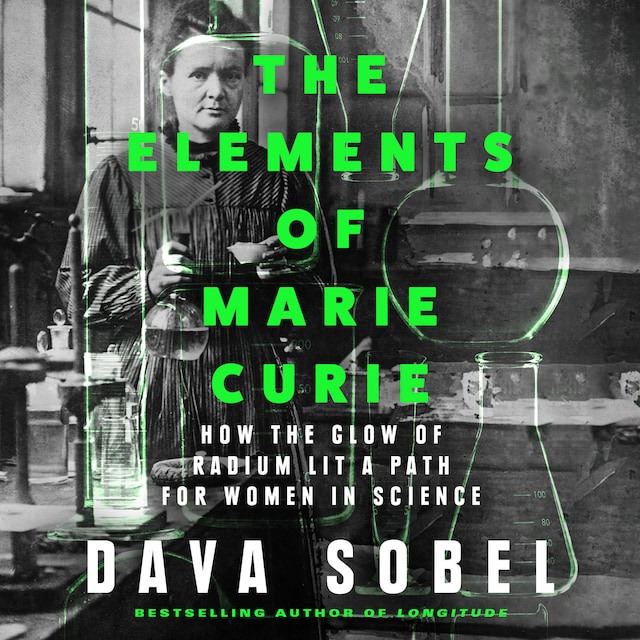
The Elements of Marie Curie
How the Glow of Radium Lit a Path for Women in Science
Description of book
Dava Sobel, acclaimed and bestselling author of Longitude, chronicles the life and work of the most famous woman in the history of science – and the untold story of the young women who trained in her laboratory.
‘A fresh and feminist study of the pioneering Nobel laureate reveals her impact on the women she mentored and set on the path to prominence’ Observer
‘It is a novel lens through which to view Curie’s story, and Sobel paints her tale with characteristic deftness and eloquence’ Financial Times
For decades Marie Curie was the only woman in the room at international scientific gatherings, and despite constant illness she travelled far and wide to share the secrets of radioactivity, a term she coined. She is still the only person to win a Nobel Prize in two scientific fields.
Her ingenuity extended far beyond the laboratory walls; grieving the death of her husband, Pierre, she took his place as professor of physics at the Sorbonne, devotedly raised two daughters, drove a van she outfitted with x-ray equipment to the front lines of World War I, befriended Albert Einstein and inspired generations of young women to pursue science as a way of life.
Approaching Marie Curie from a unique angle, Sobel navigates her remarkable discoveries and fame alongside the women who became her legacy – from Norway’s Ellen Gleditsch and France’s Marguerite Perry, who discovered the element francium, to her own daughter, Irene, a Nobel Prize winner in her own right. The Elements of Marie Curie deftly illuminates the trailblazing life and enduring influence of one of the most consequential figures of our time.
‘A lucid, literate biography, celebrating a scientific exemplar who, for all her fame, deserves to be better known’Kirkus
‘As expected from a Pulitzer Prize finalist, Sobel writes beautifully and with clarity about the science that Curie specialised in, making clear the achievements that her lab brought about’ Daily Mail
‘This is an essential read, capturing both [Curie's] genius and her legacy’ New Scientist
‘Sobel’s book is a luminous and illuminating contribution to the cause’ Literary Review


